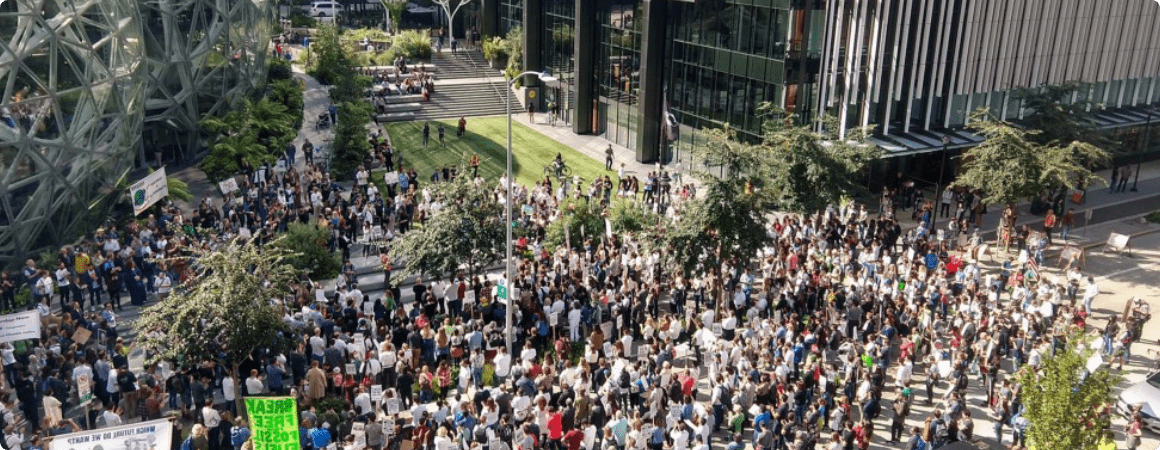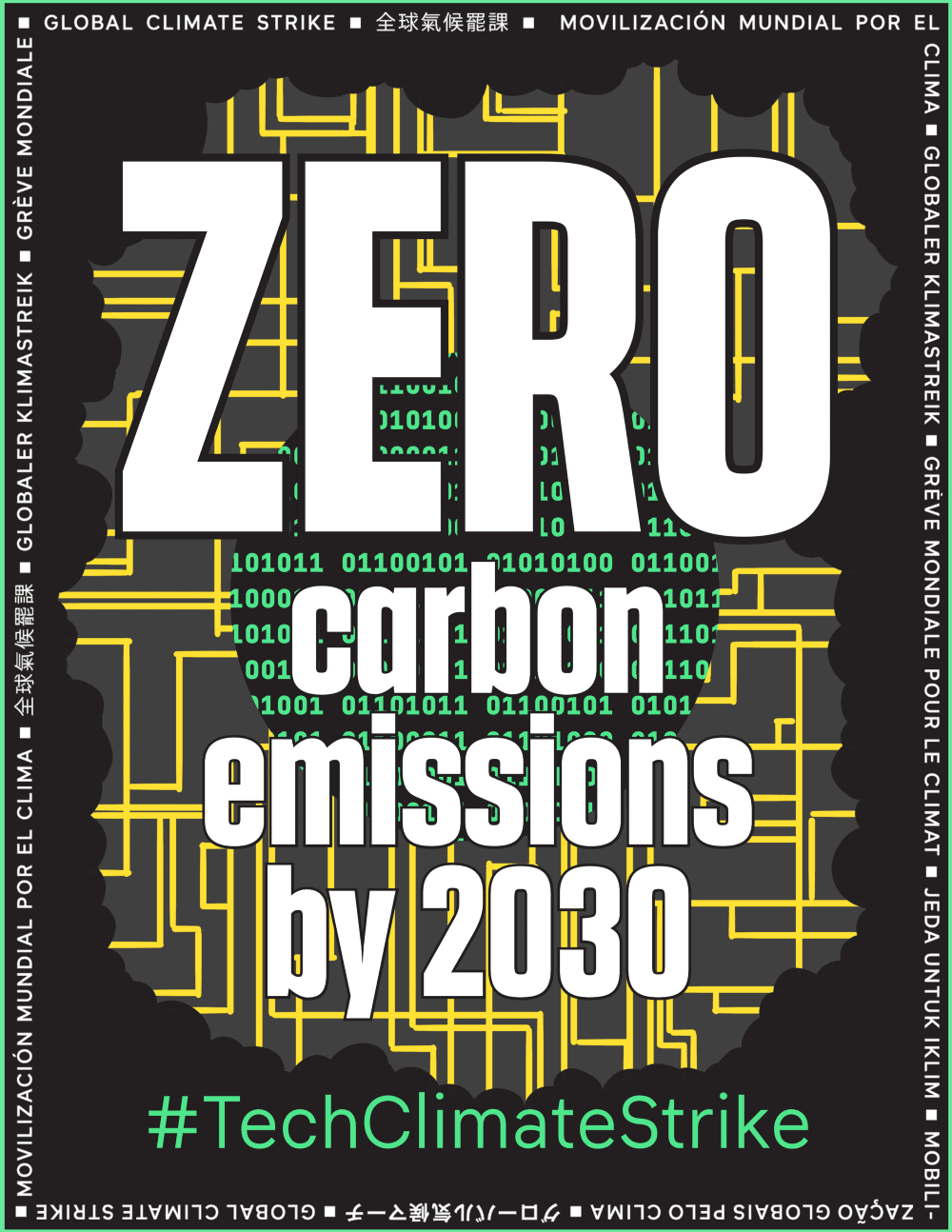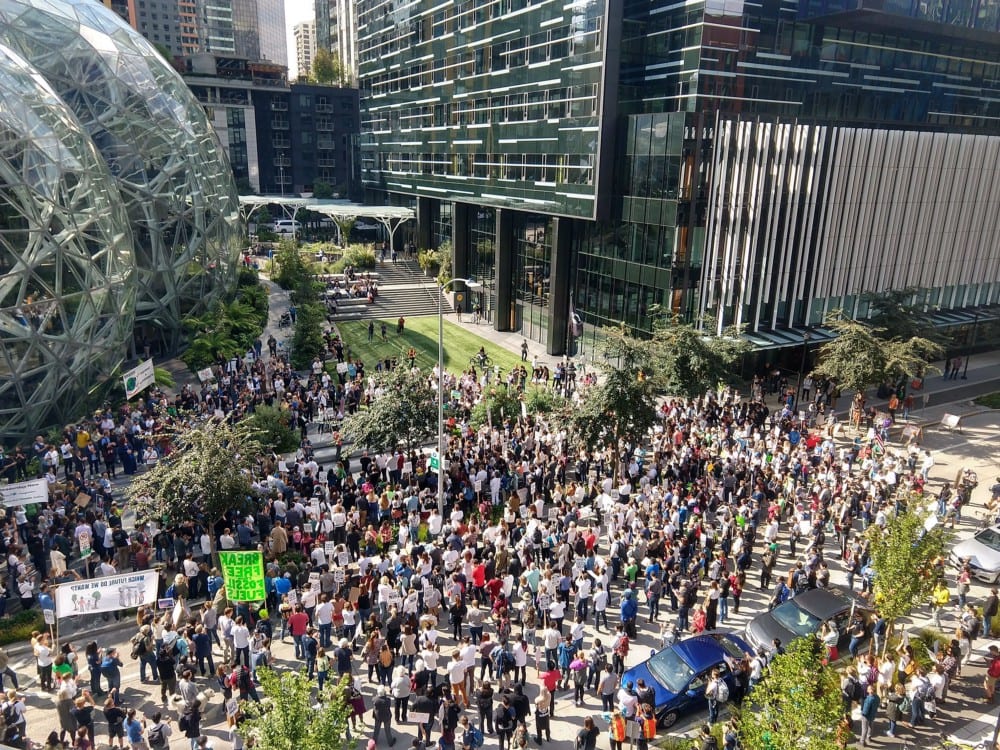How workers are confronting the climate crisis inside their companies
Employees are using workplace organizing to encourage companies to address their impacts on the environment
JANUARY 29, 2020 | COWORKER.ORG

Over the past few years, people have been organizing with coworkers to call on their employers to adhere to higher ethical standards. From Google engineers speaking out about the ethical implications of the company’s products and contracts to a Boeing employee who blew the whistle on safety concerns with the 737 Max to Wells Fargo employees who took action to stop aggressive sales quotas that led to consumer abuses: workers are refusing to be silent about issues that go beyond traditional workplace concerns. As the climate crisis escalates, employees are taking collective action to address their employers’ environmental impacts, too.
Here are some examples of employees successfully taking action in their workplaces to address environmental problems.

ACROSS THE TECH INDUSTRY:
In 2019, reporters revealed the ways in which a range of tools and corporate partnerships created by tech companies contribute to climate change. September 2019 was a major flashpoint for employees in the tech industry who have been organizing around environmental issues as workers at many top companies participated in Global Climate Strikes. Employees at Amazon, Facebook, Google, Microsoft, Square and Twitter joined the event and also released four shared demands for their companies through the Tech Workers Coalition. But this event was just one part of much broader organizing many of these employees have been leading.
AMAZON: Thousands of Amazon employees through a group called Amazon Employees for Climate Justice signed on to an open letter to the company’s CEO Jeff Bezos in April 2019 calling for a “company-wide plan addressing climate change.” Representatives from the group spoke at the company’s annual shareholder meeting in support of a related resolution. In September, Bezos announced a series of ambitious initiatives to reduce the company’s environmental impact. As TechCrunch reported: “Bezos’ statement comes as employees at his own company and others across the tech industry plan for a walkout on Friday to protest inaction on climate change from their employers.” Greenbiz noted: “Amazon employees’ activism played a major role in getting to this tipping point — including the employee stakeholder resolution that failed to pass in May but ultimately united Amazon employees and their push for the company to be more transparent when it touts its meager efforts to address the climate crisis.”

At the end of January 2020, hundreds of Amazon employees went further by sharing individually attributed statements with their views on the company’s policies (much of them climate-related), in part as a “protest to Amazon’s newly updated external communications policy, which forbids employees from speaking about the company’s business without prior approval from management.”
MICROSOFT: Microsoft Workers 4 Good, a group of Microsoft employees who also joined the climate strike, made major progress in January 2020 when the company announced new commitments to address climate change. They’ve also continued to speak out about how the company’s announcement fell short of their full demands.

STARBUCKS: Starbucks baristas concerned about the waste produced by the company’s plastic cups joined a campaign calling on the coffee chain to make a #BetterCup. Baristas also traveled to the company’s annual shareholder meeting in 2018 to call attention to their campaign. The same year, Starbucks announced a new promise to have a recyclable and compostable cup by 2021.
EPA: Even employees of the Environmental Protection Agency (EPA) recently spoke out about how actions undertaken by the agency’s management could undermine efforts to protect the environment. Through their union, they released an “EPA Workers’ Bill of Rights” which includes ten items to ensure that they are “able to carry out the agency’s mission to protect public health and tackle climate change.”
Are you feeling inspired by stories of workplace organizing around environmental issues and interested in taking action at your job?
Below are some tips and resources if you are interested in joining with your coworkers to address environmental issues at your employer:
Looking for tips on how to talk about workplace issues with your coworkers? Check out a simple guide we created.
Searching for do’s and don’ts for engaging colleagues and supporters? Check out this post.
Considering joining a climate strike or staging a workplace walkout? Check out our previous post. Some organizers are already calling for workplace strikes on April 22, the 50th anniversary of Earth Day.
Need additional resources or connections in your workplace organizing? You can reach out to our team.
Coworker.org is a global platform to advance change in the workplace. Our platform makes it easy for individuals or groups of employees to launch, join, and win campaigns to improve their jobs and workplaces. You can start your own campaign for changes you want to see in your workplace here at Coworker.org, or contact us at [email protected] if you would like to discuss a workplace issue with our team.
LABOR WORKERS RIGHTS STRIKE

